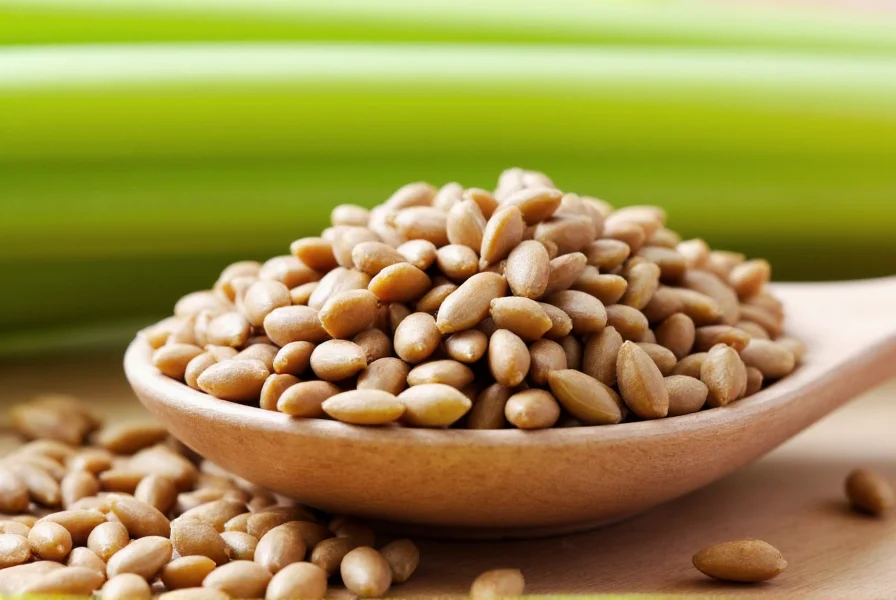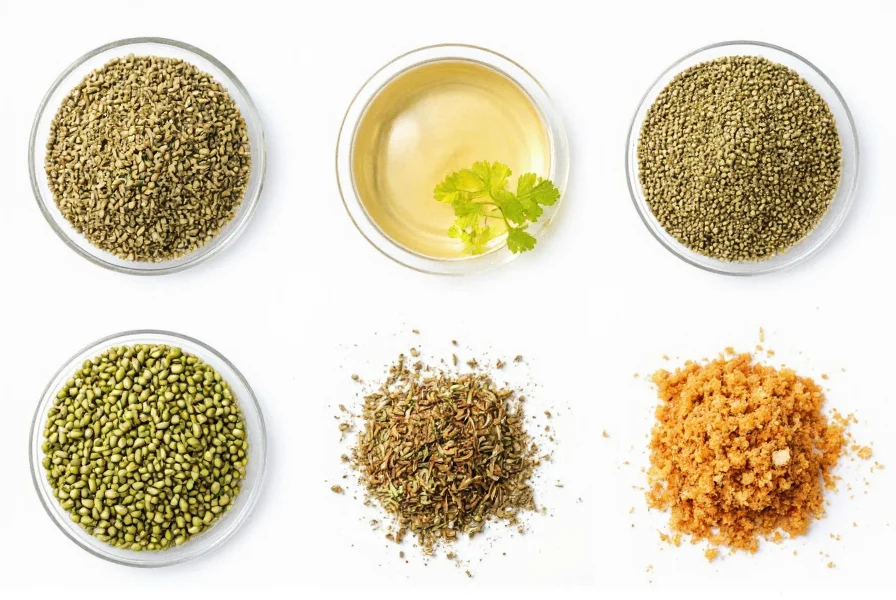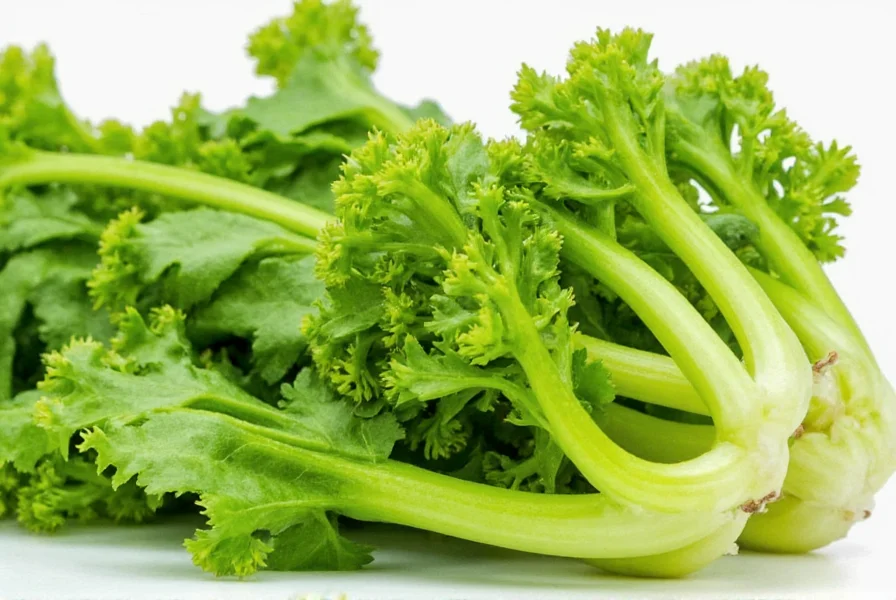Celery seeds (Apium graveolens) have been used in traditional medicine for centuries and are now gaining attention in modern nutrition science. These tiny, brown seeds come from the same plant that produces the celery stalks common in salads and soups, but they pack a more concentrated nutritional punch with distinct health-promoting compounds.
What Makes Celery Seeds Nutritionally Unique
Unlike celery stalks which are mostly water, celery seeds contain concentrated bioactive compounds. The primary beneficial components include:
- Apiol - A natural compound with demonstrated anti-inflammatory effects
- Limonene - A terpene with antioxidant and potential anticancer properties
- Sedanenolide - Contributes to celery's characteristic aroma and offers therapeutic benefits
- Essential minerals - Particularly rich in calcium, magnesium, and potassium
These compounds work synergistically to provide the health benefits associated with celery seeds, making them valuable for preventive health approaches.

Science-Backed Health Benefits of Celery Seeds
Powerful Anti-Inflammatory Effects
Multiple studies have demonstrated celery seeds' ability to reduce inflammation markers in the body. Research published in the Journal of Medicinal Food found that celery seed extract significantly reduced inflammatory cytokines. This makes celery seeds particularly beneficial for people with inflammatory conditions like arthritis. The apiol content appears to be primarily responsible for these effects, working similarly to some non-steroidal anti-inflammatory drugs but without the same side effect profile.
Digestive Health Support
Celery seeds have been traditionally used to address digestive issues, and modern research supports this application. The seeds stimulate digestive enzyme production and help relax intestinal muscles, reducing bloating and gas. A clinical trial involving 60 participants with irritable bowel syndrome found that those taking celery seed extract experienced significantly less abdominal discomfort compared to the placebo group. For natural digestive support, many health practitioners recommend consuming half a teaspoon of crushed celery seeds before meals.
Cardiovascular Protection
One of the most promising celery seeds benefits is their positive impact on heart health. The potassium content helps regulate blood pressure, while the seeds' natural compounds may help reduce cholesterol levels. A 2022 review in Nutrition Reviews analyzed multiple studies and concluded that regular consumption of celery seed compounds was associated with modest but significant reductions in both systolic and diastolic blood pressure. The magnesium in celery seeds also contributes to healthy blood vessel function.
| Nutrient | Amount per Tablespoon (6g) | % Daily Value |
|---|---|---|
| Calories | 25 | 1% |
| Fat | 1.5g | 2% |
| Fiber | 1.6g | 6% |
| Calcium | 52mg | 4% |
| Magnesium | 30mg | 7% |
| Potassium | 170mg | 4% |
Antioxidant Properties
Celery seeds contain several potent antioxidants that help combat oxidative stress in the body. The ORAC (Oxygen Radical Absorbance Capacity) value of celery seeds is significantly higher than many common spices. These antioxidants help protect cells from damage that can lead to chronic diseases. Regular consumption may contribute to reduced risk of certain cancers and age-related cognitive decline.
How to Incorporate Celery Seeds Into Your Diet
Understanding how to use celery seeds properly maximizes their health benefits while minimizing potential risks. Here are evidence-based recommendations:
- Culinary uses: Add to soups, stews, and salad dressings for flavor and nutrition
- Tea preparation: Steep 1 teaspoon of seeds in hot water for 10 minutes for digestive support
- Dosage guidelines: Most studies use 250-500mg of extract daily or 1-2 teaspoons of whole seeds
- Storage tips: Keep in an airtight container away from light to preserve potency

Safety Considerations and Potential Side Effects
While celery seeds offer numerous health advantages, certain precautions are necessary:
- Pregnancy concerns: High doses may stimulate uterine contractions; pregnant women should avoid medicinal amounts
- Photosensitivity: The psoralen content can increase skin sensitivity to sunlight
- Medication interactions: May interact with blood thinners, lithium, and thyroid medications
- Allergic reactions: Those allergic to celery stalks may also react to the seeds
As with any natural remedy, consult with a healthcare provider before using celery seeds therapeutically, especially if you have existing health conditions or take prescription medications.
Conclusion
Celery seeds represent a powerful natural remedy with multiple scientifically supported health benefits. From reducing inflammation to supporting digestive and cardiovascular health, these small seeds deliver significant nutritional value. When used appropriately and with awareness of potential contraindications, celery seeds can be a valuable addition to a health-conscious diet. The key is consistent, moderate consumption as part of an overall balanced approach to wellness rather than expecting dramatic immediate effects.
Frequently Asked Questions
What are the most scientifically supported benefits of celery seeds?
Research most strongly supports celery seeds' anti-inflammatory properties, digestive health benefits, and cardiovascular support. Multiple studies confirm their ability to reduce inflammatory markers, improve digestion, and modestly lower blood pressure. The apiol and limonene compounds appear primarily responsible for these effects.
How much celery seed should I consume daily for health benefits?
For culinary use, 1-2 teaspoons daily is generally safe. For therapeutic benefits, research suggests 250-500mg of standardized extract or 1 teaspoon of whole seeds daily. Higher medicinal doses should only be used under healthcare provider supervision due to potential side effects.
Can celery seeds lower blood pressure naturally?
Yes, several studies indicate celery seeds may help lower blood pressure. The potassium content helps regulate fluid balance, while bioactive compounds appear to relax blood vessels. A 2022 review found modest but significant reductions in both systolic and diastolic readings with regular consumption, though they shouldn't replace prescribed hypertension medication without medical supervision.
Are there any medications that interact with celery seeds?
Celery seeds may interact with blood thinners (like warfarin), lithium, thyroid medications, and certain diuretics. The compounds in celery seeds can affect how these medications are metabolized or may enhance their effects. Always consult your healthcare provider before using celery seeds medicinally if you take prescription medications.
How do celery seeds compare to celery seed extract?
Whole celery seeds provide fiber and a broader spectrum of compounds, while extracts offer concentrated doses of specific active ingredients. Extracts typically contain higher levels of apiol and limonene, making them more potent for therapeutic use but potentially increasing side effect risks. For general health maintenance, whole seeds are preferable; for targeted therapeutic applications, standardized extracts may be more effective under professional guidance.











 浙公网安备
33010002000092号
浙公网安备
33010002000092号 浙B2-20120091-4
浙B2-20120091-4